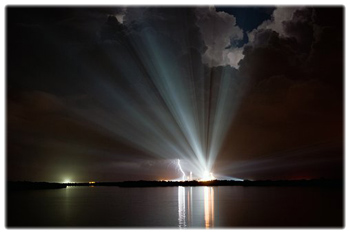
In March, our church Hope Wesleyan made the decision to suspend its in-person worship services. The primary foundation for this decision was a commitment as a church to love and serve our neighbors. In Ephesians 5, Paul’s charge is to “Follow God’s example, therefore, as dearly loved children and walk in the way of love, just as Christ loved us . . . .” Jesus loved us by laying down his life for us while we were still his enemy. When we were asked not to meet in-person but to find other creative ways to meet, we gladly accepted this inconvenience as an expression of our love for our neighbors. This commitment forms the foundation of our organizing for the return to in-person worship. Our first priority is the safety and well-being of our church family and the wider community. Our second priority is the public reputation of Hope in our community and the wider Christian church. In 1 Corinthians 11, Paul is addressing problems within the church at Corinth. He says this to them, “In the following directives I have no praise for you, for your meetings do more harm than good” (vs. 17). He then describes destructive divisions and favoritism within the community. For the sake of the church community and its witness in the city, it would have been better if they had not met. It is possible for our meeting together, even if we have the right to, to be more destructive than not meeting at all. We can unnecessarily put at risk the physical health of our church family and community as well as cause irreparable harm to our church’s reputation in our city. Therefore, these two priorities form the basis of our decision making.
Our commitment as leaders is to seek to provide for the spiritual growth and needs of all of our church family.
In the book, Canoeing the Mountains¸ Bolsinger describes the moment when the Lewis and Clark expedition reaches the peak of the Continental Divide as a “deep disorientation.” Their expectation was to see an open prairie leading to the Columbia River Basin and out to the Pacific Ocean. What they instead saw was mountain range after mountain range of the rugged snow-capped mountains like they had never seen before. It is hard to picture how disheartening and discouraging that moment must have been. Their expectations and plans were confronted by the reality of the Rocky Mountains. They were profoundly disorientated. Bolsinger warns that:
when we get to moments of deep disorientation, we often try to reorient around old ways of doing things. We go back to what we know how to do. We keep canoeing even though there is no river. At least part of the reason we do this is because we resolutely hope that the future will be like the past and that we already have the expertise needed for what is in front of us. (92, emphasis original).
In this moment, what was necessary for the Corps of Discovery was an adaptive shift. “This is the moment when they had to leave their boats, find horses and make the giant adaptive shift that comes from realizing their mental models for the terrain in front of them were wrong” (93).
As a church community, we have been confronted by an adaptive shift. We have climbed to the top of our Continental Divide. We expected to look onto the other side and see a return to worship and community as we were used to doing things. We planned for a celebration. Instead, we are faced with are the Rocky Mountains of uncertainty, snow-capped by state and federal regulations.
In the face of an adaptive challenge, Bolsinger says the first thing we do is recommit to our core ideology. We start with why we exist. He gives the following questions for organizations to answer when “facing-the-unknown moment:”
- Why do we exist as a congregation, institution or organization?
- What would be lost in our community, in our field or in our world if we ceased to be?
- What purposes and principles must we protect as central to our identity?
- What are we willing to let go of so the mission will continue? (94-95)
After recommitting to our core ideology, the next step is to reframe our strategy in light of our core ideology. “In adaptive leadership, reframing is another way of talking about the shift in values, expectations, attitudes or habits of behavior necessary to face our most difficult challenges” (95).
Third, in the face of an adaptive shift, we rely on learning. We always default to the level of our learning. Unless we commit to learning to do things differently, we will revert to what we have done before. We will canoe the mountains.
These moments of deep disorientation requiring adaptive shifts. Standing at the peak, we can choose to turn around and go back, or we can recommit to our core ideology, the mission of God. We can reframe our strategy and dedicate ourselves to learning how to navigate in this unknown world.
Blessings,
Stephen
Source Book:
Bolsinger, Tod. Canoeing the Mountains: Christian leadership in uncharted territory, IVP Books, 2018.




 The Milk Can returns! After a needed break we are back. In 1 Corinthians Paul says some things are spiritual milk and other things spiritual meat. The Milk Can remains a quirky look at life and an encouragement for your week.
The Milk Can returns! After a needed break we are back. In 1 Corinthians Paul says some things are spiritual milk and other things spiritual meat. The Milk Can remains a quirky look at life and an encouragement for your week.